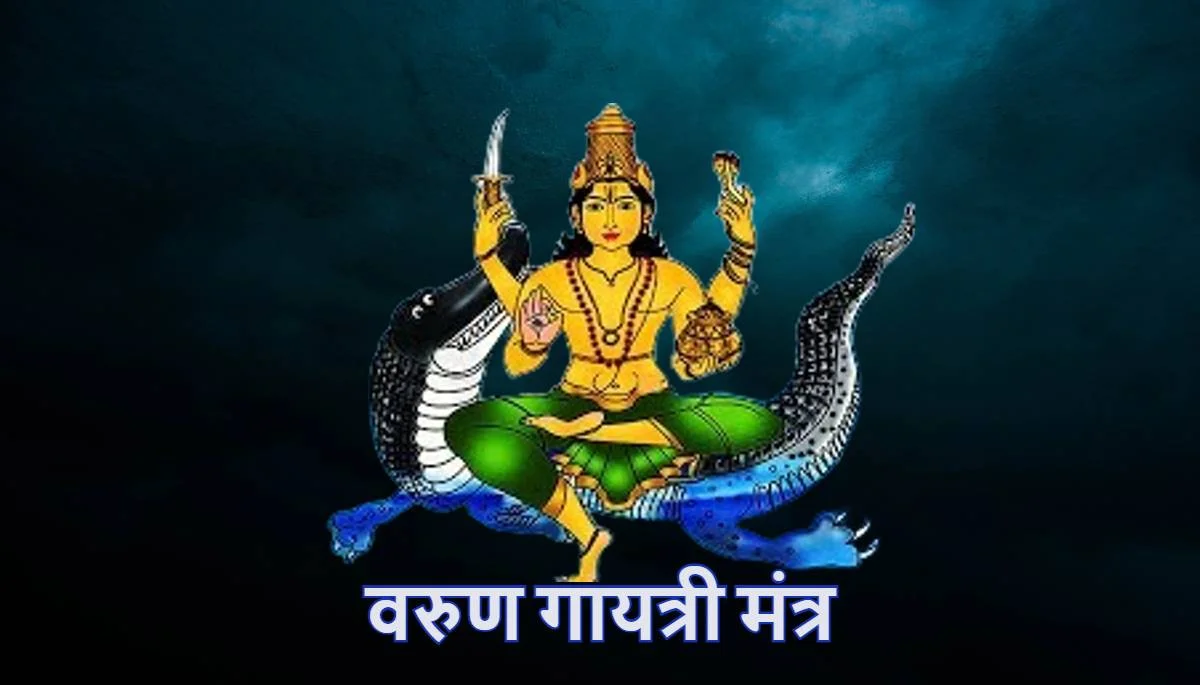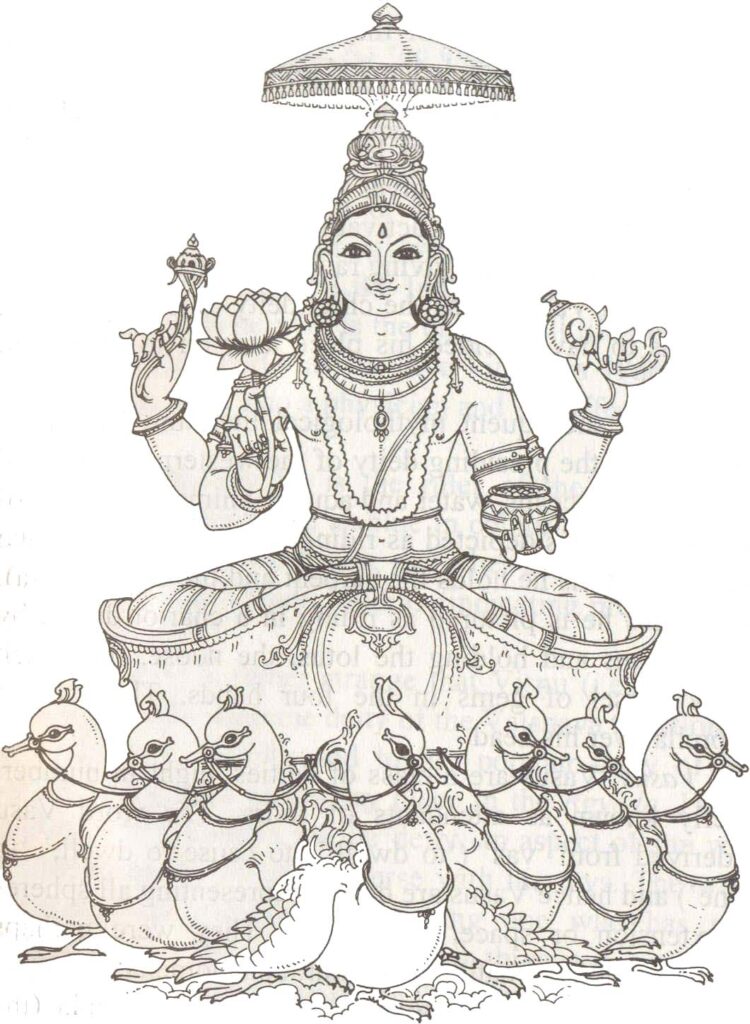
Varuna is an ancient Vedic god in Hinduism who is primarily associated with the cosmic order, the moral law, and the control and regulation of the universe. He is often depicted as a god of the waters, both in the celestial and terrestrial realms. Here are some key aspects of Varuna as a god:
- Cosmic Order and Moral Law: Varuna is considered one of the Adityas, a group of solar deities, and he is especially associated with the enforcement of the moral and cosmic order (rita). He is often seen as the guardian of truth, justice, and ethical principles. Varuna is known for maintaining a watchful eye over the world and ensuring that all beings adhere to the laws of dharma (righteousness).
- Control Over Waters: Varuna’s association with water is significant. He is often described as the lord of the cosmic ocean and the guardian of the waters in the heavens and on Earth. As such, he is sometimes invoked to bring rain and regulate the natural elements.
- Nocturnal Deity: Varuna is often associated with the night sky and is considered a nocturnal deity. In some texts, he is described as residing in the western sky, where he watches over the world during the night.
- Compassion and Forgiveness: While Varuna is a god who upholds the moral order and is capable of punishing wrongdoers, he is also known for his compassion and forgiveness. Devotees could seek his mercy and forgiveness when they had transgressed the moral code.
- Vedic Hymns: Varuna is mentioned in several hymns in the Rigveda, one of the oldest sacred texts in Hinduism. These hymns praise his attributes and powers as a divine ruler and judge.
It’s important to note that over time, Varuna’s significance waned, and he was gradually replaced by other deities in Hinduism, such as Vishnu and Shiva, who became more prominent in the later stages of the religion. Nevertheless, Varuna’s role in early Vedic literature and his association with cosmic order and moral law make him an essential figure in the history of Hindu mythology and theology.
Varuna ‘the one who econompasses the whole world,’ is one of the oldest Vedic deities. May be he is the personification of the sky; but he is also associated with clouds and water, rivers and ocean. He is sometimes clubbed with Mitra and praised (Mitravaruna).
Varuna is the king of the universe and lives in the highest world. His knowledge and power are unlimited. He has thousand eyes and oversees the whole world. Hence he is the lord of the moral law. He punishes those who transgress this law but forgives them out of compassion if they repent and pray. By activating Vayu, the lord of the wind, he sustains life by giving rain and crops.
Though Varuna was the chief deity in the beginning, he seems to have yielded his place later on to Indra and Prajapati.
In the subsequent mythological literature Varuna is described as the presiding deity of the western quarter and as the lord of oceans, water and aquatic animals. In some of the temples he is depicted as riding on a crocodile. In two of his four arms he holds the serpent and the noose (pasa). Sometimes he is pictured as riding in a chariot drawn by seven swans and holding the lotus, the noose, the conch and a vessel of gems in the four hands. There is an umbrella over his head.
Vasus: Vasus are a class of deities, eight in number, chiefly known as attendants of Indra. The word Vasu is derived from ‘vas’ (‘to dwell,’ ‘to cause to dwell,’ ‘to shine’) and hence Vasus are deities representing all spheres of extension or space, and height. They were perhaps personifications of nature and natural phenomena.
The eight Vasus are: Dhara (the earth), Anala (the fire), Ap (the waters), Anila, (the wind),. Dhruva (the polestar), Soma (the moon), Prabhasa (the dawn) and Pratyusa, (the light).

ॐ जल बिम्बाय विद्महे नील पुरुषाय धीमहि तन्नो वरुण: प्रचोदयात् ।।
वरुण गायत्री मंत्र का अर्थ
ॐ, मैं जल के प्रतिबिम्ब का ध्यान करते हुए
हे समुद्र के नीले रंग के राजा, मुझे उच्च बुद्धि प्रदान करें
और जल के देवता को मेरे मन को रोशन करने की प्रार्थना करता हूँ।
